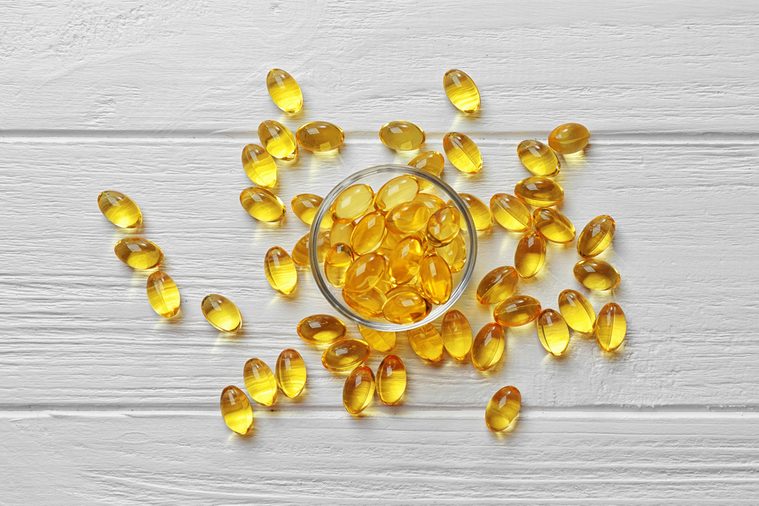Lisovskaya Natalia/Shutterstock
Iron
$27.00
Shop Now
Iron helps transport oxygen throughout your body, which is why a deficiency can leave you feeling fatigued. Remember how Popeye eats spinach and becomes strong and powerful? Yep, spinach is packed with iron. An iron deficiency has been linked to restless leg syndrome, a condition that causes uncomfortable sensations in the legs and an urge to move the legs when falling asleep. Dr. Levitan and her co-author, endocrinologist Romy Block, MD, say iron deficiency is common—particularly among women. If you have iron-deficiency anemia, you may need to take a supplement. You can also try to get more these iron-rich foods into your diet.
Magnesium
$16
$24 at Amazon
This essential mineral assists your body in producing the sleep hormone melatonin. Magnesium also relieves muscle tension that can prevent restful sleep; it can even help ease tension by encouraging production of an amino acid known as GABA, which that relaxes the nervous system. Carolyn Dean, MD, ND, a medical and naturopathic doctor in Kihei, HI, estimates that more than 75 percent of Americans aren’t getting the recommended dietary allowance (RDA) of magnesium. Dr. Dean recommends aiming for a 600 mg dosage via a magnesium citrate powder that you can dissolve in water. However, you shouldn’t supplement if you have kidney failure or an excessively slow heart rate, she says; instead, enjoy foods with higher magnesium content, such as green leafy veggies, pumpkin sesame seeds, and Brazil nuts.
Vitamin B12
$13
34.9946% OFF$18.95 at Amazon
Vitamin B12 keeps the body’s nerve and blood cells healthy and helps the body create energy. Dr. Levitan sees many patients—particularly vegans, vegetarians, and older adults—who are deficient in vitamin B12. Low vitamin B12 levels can cause fatigue, sleep disturbances, numbness and tingling, and other symptoms.





























